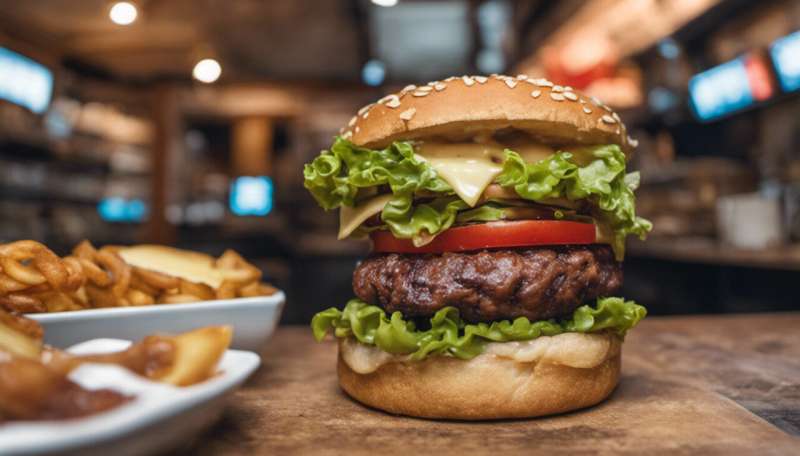This article has been reviewed according to Science X's editorial process and policies. Editors have highlighted the following attributes while ensuring the content's credibility:
fact-checked
peer-reviewed publication
trusted source
proofread
Could taxing unhealthy food help in the battle against climate change?

Foods high in fats, sugar and salt (HFSS) have a significant impact on public health, the climate and the economy, but could taxing these products help in the fight against climate change?
A new study recently published in the Journal of Cleaner Production, from the University of Aberdeen Rowett Institute, the University of Edinburgh and Scotland's Rural College (SRUC) has found that taxing HFSS could potentially reduce emissions from food consumption, however, it's unlikely that one policy could achieve both nutritional and climate goals.
The study, based on the analysis of secondary data collected from 3,260 households in Scotland across 18 food categories, aimed to understand the implications of an excise tax on HFSS food purchases. The study explored two policy scenarios:
- Taxing all HFSS products while keeping the prices of other food items unchanged.
- Taxing HFSS products while subsidizing fruit and vegetables with the revenue generated.
The study found that imposing taxes on HFSS products led to a reduction in their consumption due to price effects. Specifically, a 10% tax on HFSS food groups, combined with subsidizing fruits and vegetables using tax revenues, resulted in a 5%–9% decline in HFSS consumption and an 11% and 7% increase in vegetable and fruit consumption, respectively.
However, the study also highlighted the potential environmental impact of these policies. When tax revenues were used to subsidize fruit and vegetables, greenhouse gas emissions increased by 2%. In contrast, emissions decreased by 3% when only HFSS food groups were taxed.
In addition to this, the study also found that taxing HFSS without a subsidy policy in place could have a more regressive impact on consumers compared to when fruits and vegetables were subsidized.
Dr. Wisdom Dogbe, from the University of Aberdeen Rowett Institute, led the study. He said, "This study shows us that there are very real trade-offs between achieving dietary, welfare and environmental goals.
"Going forward, this research can be considered in ongoing discussions about the banning of promotions on HFSS. If there weren't promotions on these products, and prices were to naturally increase as a result, we believe this could be beneficial as it may encourage consumers to reduce their purchases.
"Ultimately, our research highlights the complex interplay between dietary, welfare, and environmental goals when implementing a HFSS tax policy. The choice of policy scenario adopted by the government would have to depend on the national objectives and priorities."
More information: Amarachi Nneli et al, Could taxes on foods high in fat, sugar and salt (HFSS) improve climate health and nutrition in Scotland?, Journal of Cleaner Production (2023). DOI: 10.1016/j.jclepro.2023.138564
Journal information: Journal of Cleaner Production
Provided by University of Aberdeen




















